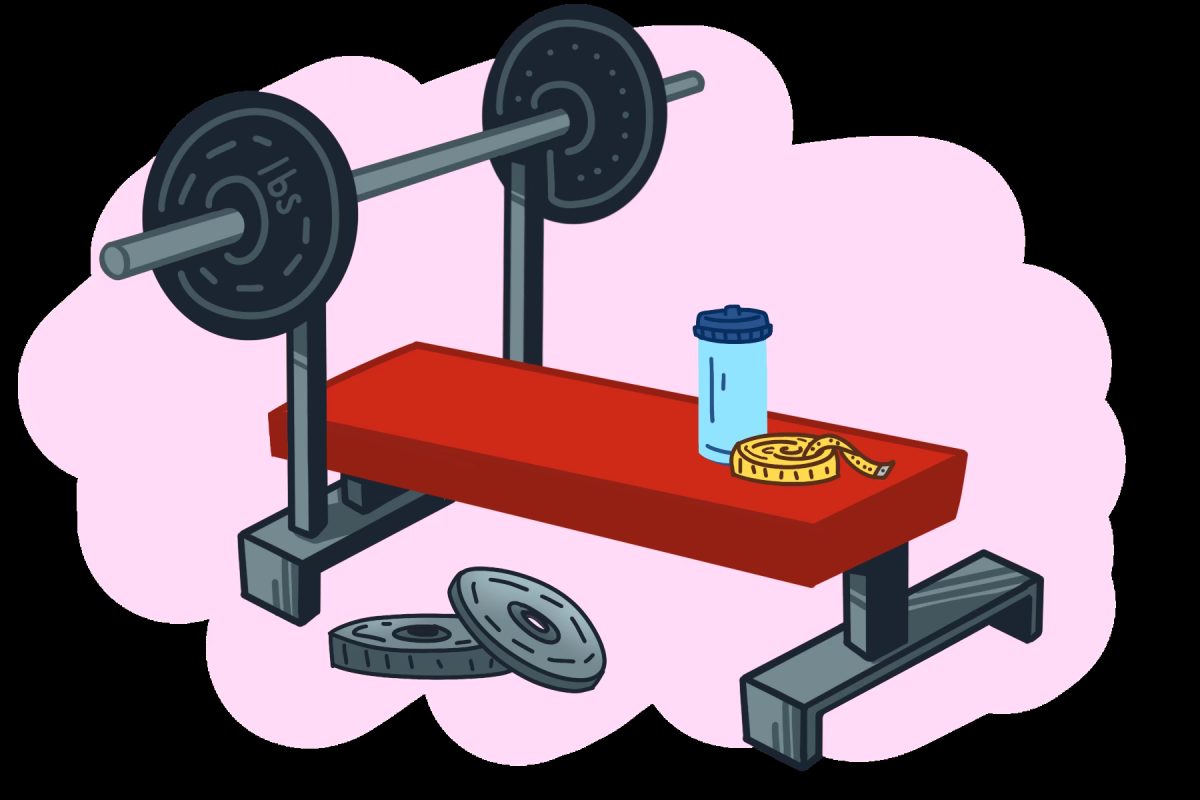Exercise, especially weightlifting or resistance training, was often something I avoided in my youth. I remember growing up with all my football player friends being bigger and stronger than me, causing me to resent my physical weakness.
For most of my life, I have relied on my intellect to carry me through my insecurities about my physical weaknesses. I recall many times when I would argue with my more muscular and physically fit friends that they were only concerned about their appearance and should spend more time studying than going to the gym.
Now that I am older, I have learned that I only held this position because I was covering up for my own inadequacies. Over the last five months, I have turned over a new leaf and decided to embrace physical fitness as a goal — particularly weightlifting. I think many people like me who have often put off going to the gym should reconsider their approach because staying active is great for mental and physical health.
One of the key benefits I have found in weightlifting is the positive effect it has had on my mental health. Mayo Clinic notes that physical activity, including weightlifting and resistance exercises, releases endorphins that reduce anxiety and depression while boosting cognitive function. It has also been shown that, on average, students sit for 7.96 hours per day, which is known to be correlated with higher levels of stress, anxiety and depression.
As a person who is often preoccupied with the stress of school and daily life, weightlifting has allowed me to find an outlet to finally shut off my mind and focus on the task at hand. I have found that weightlifting requires that you push yourself to failure and focus your entire body and mind on that singular goal.
When your entire body and mind are focused on the task at hand, it becomes far more challenging to think about anything but finishing the next rep. The mental relaxation that comes from focusing on weightlifting is one of the key reasons I have stuck with it.
While I could sing the praises of weightlifting for its mental benefits, the physical benefits are just as important. America is an increasingly overweight, unfit and generally unhealthy society. From the garbage in our foods to the sedentary lifestyle many of us live, especially in college, it is not surprising that studies have shown that by 2030, almost half of all U.S. adults will be obese.
Given that even moderate obesity can take years off of life expectancy, students at Alabama should take the time they have now to get active and change their lives for the better.
The University offers many amenities for students looking to get active, from the Robert E. Witt Student Activity Center to the Student Recreation Center. Unfortunately for many of us, it is not always easy to visit these activity centers because parking can be difficult, especially when there is limited space for those without permits, and oftentimes there simply are not enough machines available for everyone — particularly during the busier times of day when most of us have the time for exercise.
While we should praise the University for providing us with the space and equipment to improve our health, it could do an even better job by providing our facilities with more abundant equipment so that improving our physical health is less of a hassle than it already is. Minimizing barriers to entry is key if we want to improve our society’s overall physical fitness, and college campuses can be at the forefront of a healthier America.
However, there is one area in which the University perhaps does too good of a job, and that is access to fast food. I would be the first to admit to an unhealthy love of fast food. I don’t remember the last time I went a whole week without eating fast food, and I will often eat fast food as many as five times a week. While this lifestyle is not healthy, it is common among people our age — studies by the National Center for Health Statistics have found that young people are far more likely to eat fast food on a given day than older Americans.
When it comes to fast food, it is hard to beat the convenience; after all, why not use your VIP meal to go and grab some Panda Express or Wendy’s? Much of the food provided at dining halls includes unhealthy options like pizza, which was by far my most frequent meal at Lakeside during my first year.
We should all want to live in a country where our fellow citizens are mentally and physically fit. As such, our universities should create an environment in which being healthy is not just an option but is just as accessible as the alternatives.
Access to healthy foods and exercise spaces are vital for a healthy student body, and while I have never been a fan of running on a treadmill and I am prone to overconsumption of fast foods, making the first steps towards a healthier lifestyle is always the hardest. While the University could always do a better job of making it easier for us to make those first steps, it is up to us to commit to a healthier way of life.









